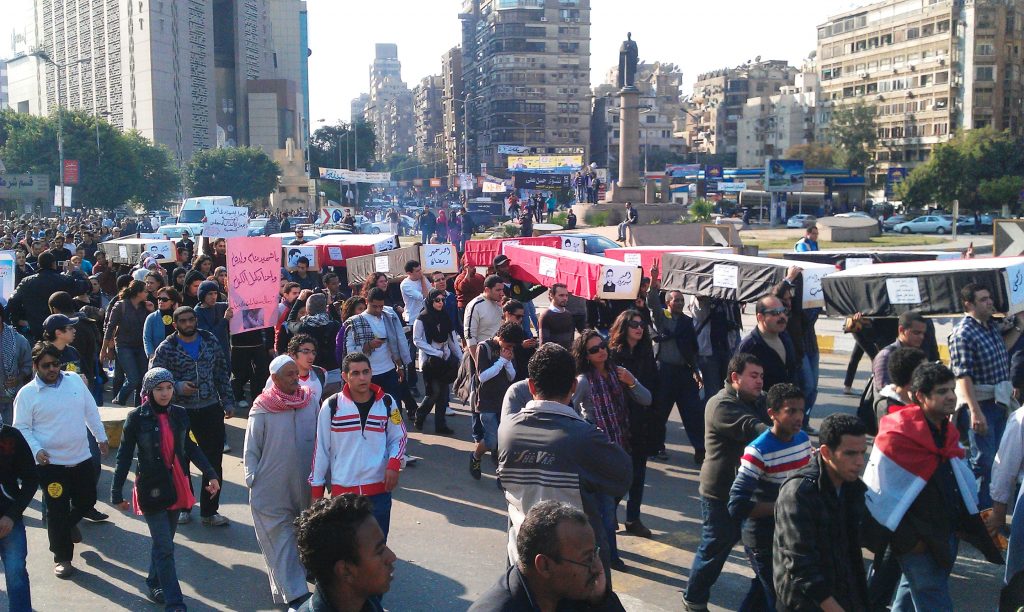
"If I see another protester, I swear I’d spit on him," said the exasperated taxi driver, observing a rally to commemorate the martyrs of the revolution in Tahrir Square on December 2.
"Would you spit on someone whose brother, sister, or father died while fighting for your rights?" replied my brother, as he rode to Tahrir Square.
The sentiment on the streets of Cairo has increasingly turned against the revolutionaries in Tahrir square. Faced with a lack of public support, depleting personal funds, and smaller turnouts since the start of the election period, protesters have suffered a slow and steady decline in morale. Today’s "million man march" hoped to revive the enthusiasm for the protesters’ demands, including the immediate transfer of executive authority to a civilian body and accountability for those responsible for the deaths of demonstrators in this latest round of public upheaval.
At the Mostafa Mahmoud mosque in the Mohandeseen neighborhood of Cairo, two hundred protesters gathered after Friday prayers carrying 15 coffins draped in the Egyptian flag with names and pictures of those who had died since the beginning of the second wave of the revolution. They chanted slogans against the Supreme Council of the Armed Forces (SCAF) and tore down campaign posters as they marched through the streets. By the time they reached Tahrir, their numbers exceeded a thousand. The march joined other protests taking place in the square before continuing to the parliament building where the coffins were laid at the gates.
Despite the excitement it stirred, the symbolic funeral procession did not attract as many protesters to Tahrir as it may have done in previous weeks. With the focus of the country on the results of the current election round and the announcement of a new salvation government, fewer Egyptians feel the need to protest and hope elected officials will solve their problems. One weary April 6th Movement organizer expressed dismay at the public’s indifference to basic demands such as a rejection of the super constitutional exceptions for the military. He expected a meeting of organizers to discuss whether or not to continue the sit-in in Tahrir.
Although this second uprising appears to be taking its final breath, the SCAF and the new government cannot ignore the ability of the people to mobilize once again should an outbreak of violence or blatant violations of human rights recur. The protesters, clearly tired from their three week ordeal, have all reiterated their readiness to return if the need arises. It seems, at least for the moment, the battle will continue in the political arena.
Tarek Radwan is an Egyptian human rights activist specializing in international law and conflict resolution. He has worked for Human Rights Watch’s MENA division and the United Nations mission (UNAMID) in Darfur as a Human Rights Officer. He currently provides consulting services on civilian protection and Middle East issues.
Photo Credit: Tarek Radwan
Image: tahrir_1.jpg
